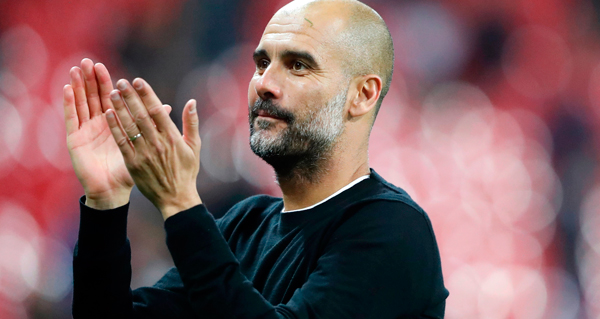Worse for wear yet still intact, we’re getting through the end of this strange interrupted soccer season. La Liga wrapped up last weekend with Real Madrid as champions and the usual suspects trailing them in the table. The Premier League only has some relegation battles and a couple European places to sort out. Juventus need another result or two to lock down Serie A. There have been few spectacular surprises after the restart, but what we kind of already knew is being officialized. Everybody’s playing the right number of games and 20 years from now the records, aside from all the match reports that feature eight or nine substitutions, will basically look normal. Oh yeah, that was the corona year.
Almost every club is on the verge of enjoying a short rest ahead of what’s going to be a tough 2020-21 season that will feel like every player on the continent was asked to participate in the European Championship that was supposed to take place this summer. But 12 outfits still have business to attend to. They’ll be headed to Lisbon on August 7th to play out the rest of the Champions League. Madrid, Man City, Chelsea, Bayern, Lyon, Juve, Barcelona, and Napoli all have to finish up the second legs of their round of 16 ties. Atlético Madrid are going to play Leipzig in the quarters, where PSG will also face off against Atalanta. After the round of 16 concludes, everything going forward will be single elimination: three wins gets you the title.
It’s unclear what this particular title is going to mean. Soccer is already a sport in which the value of a given title is more constructed than, say, basketball, where only one trophy is handed out per season and there’s not much debate over what it means. It’s a matter of taste, really, whether you would rather your favorite team win their domestic league or the Champions League, and the Europa League and national cups are exercises in choosing your own level of excitement. (The general rule: they’re a big deal to medium- and smaller-sized clubs and almost a hassle for the mega-rich.)
The domestic champs this season are about as happy as they would be had the year been completely normal. Hell, Liverpool nearly already had their first place spot secured before the pandemic opened a rift in the schedule, and though the matches played since the various leagues restarted have been slightly off, with no fans in the seats and players at somewhat inconsistent levels of conditioning and shedding patinas of technical rust, hardly anybody is arguing that the competition has been illegitimate. Real Madrid had the best Liga season, no asterisk required.
But this uncanny Champions League: hmm. We’ve already played the group stages same as we always do and those knockout matches that have already happened have no stink on them. Leipzig bounced Tottenham, Atleti took down Liverpool, etc. That’s all above board. Even these long-delayed second legs are basically fine. Manchester City, for instance, don’t get to play Madrid at the Etihad, but they’re up 2-1 on aggregate and if they blow that advantage, it’s going to be difficult to claim that they’ve been eliminated unfairly.
The issue is from the quarterfinal forward. It’s different—more convincing—to beat another team over two legs than one. It’s different—more challenging—to have to balance the demands of your domestic competitions against your continental challenge than to be able to focus solely on the latter. Each squad is on equal footing and no one has an advantage over any other, so there’s not a competitive balance problem, but it’s just not what we mean when we say Champions League. The rhythms aren’t right; the setting doesn’t fit. Some nonsensical formulations: this edition of the CL is like if people cared quite a bit about the Club World Cup, or if the World Cup were a club competition. There are no perfect analogies to make; this competition is its own entity. Preemptive sympathies to whoever wins it, because their fans, especially if it’s a club taking their first CL, are going to embarrass themselves insisting that it’s a 100 percent, put-a-star-over-the-crest title, which is the only thing we can say it definitely isn’t.
But whatever, it’s sports, we can spin our own realities from its thread and risk nothing so much as side-eye from folks who don’t share our vision. One of the most appealing aspects of soccer is that you can argue about it plentifully, right down to the scorelines, because in a given match, luck can play a rather large role, one great strike can erase a dozen beautiful moves that have flowed in the opposite direction. Refereeing screw-ups, physics-defying bounces. You choose for yourself whether or not the outcomes line up with the process, what seems earned and what doesn’t, in a cosmic sense. So perhaps this Champions League is, in its way, a realization of the sport’s capacity for a broad spectrum of interpretation. Or perhaps it’s a jacked-up tournament that should be fun, if not taken too seriously, played out primarily for the benefit of club and television executives. It can many things at once. It is certainly something, upon which we will probably never totally agree.



